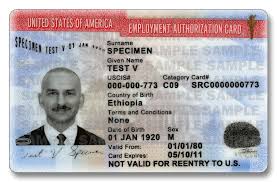STEM OPT: The Fight is Not Over Yet
 With the publishing of the new STEP OPT rule just last month, many thought that this could be the end of the lawsuit brought against USCIS over this issue. The Court overseeing this case found that USCIS had violated procedures surrounding the rule making of that last OPT extension, which lead to USCIS redoing the rule making process and the new rules.
With the publishing of the new STEP OPT rule just last month, many thought that this could be the end of the lawsuit brought against USCIS over this issue. The Court overseeing this case found that USCIS had violated procedures surrounding the rule making of that last OPT extension, which lead to USCIS redoing the rule making process and the new rules.
Unfortunately, the group that brought the lawsuit Washington Alliance of Technology Workers (Washtech), through their attorneys from the Immigration Reform Law Institute (ISLI), is still appealing the ruling of the lower Court which ruled that the ISLI only had jurisdiction to sue over the STEM OPT rule and not all OPT as well as the part of the ruling that agreed with USCIS that the definition of student could include those not in school any more at the time (without the benefit of such a definition USCIS could not implement any OPT rules). Washtech and ISLI maintain that all OPT rules were developed to circumvent protecting for the US workforce required for such visas as the H-1B (payment of a prevailing wage, no lockouts or strikes, etc.). They also maintain that OPT hurts US workers, especially recent US graduates.
Before discussing the impact of the continuation of the law suit, I would like to state that the allegations that OPT or other immigration programs hurt US workers or graduates is disproved by all research in this area. All research shows that areas with higher level of immigrants who are working create more jobs, have a lower unemployment rate and a better economy that those with less immigrations. (See this article for example).
If the appeals court agrees with Washtech it could call into question all OPT Rules and lead to USCIS having to stop issuing OPT documents unless and until the US Congress changes the statute. Considering the divided nature of the current congress, the chances of them getting together on this issue is very small, which means if the Court rules that the OPT laws are no longer valid, that ruling will not be changed by legislation anytime in the near future. This would hurt not just foreign graduates, but the US economy as well, as fewer students would come to the US and many fewer students would stay after their studies. As discussed above, this decrease in immigration would actually act to hurt our economy.
Hopefully the Appeals court will uphold the lower court ruling and the OPT rules will remain in place. We will, of course, update you as news develops in this case.